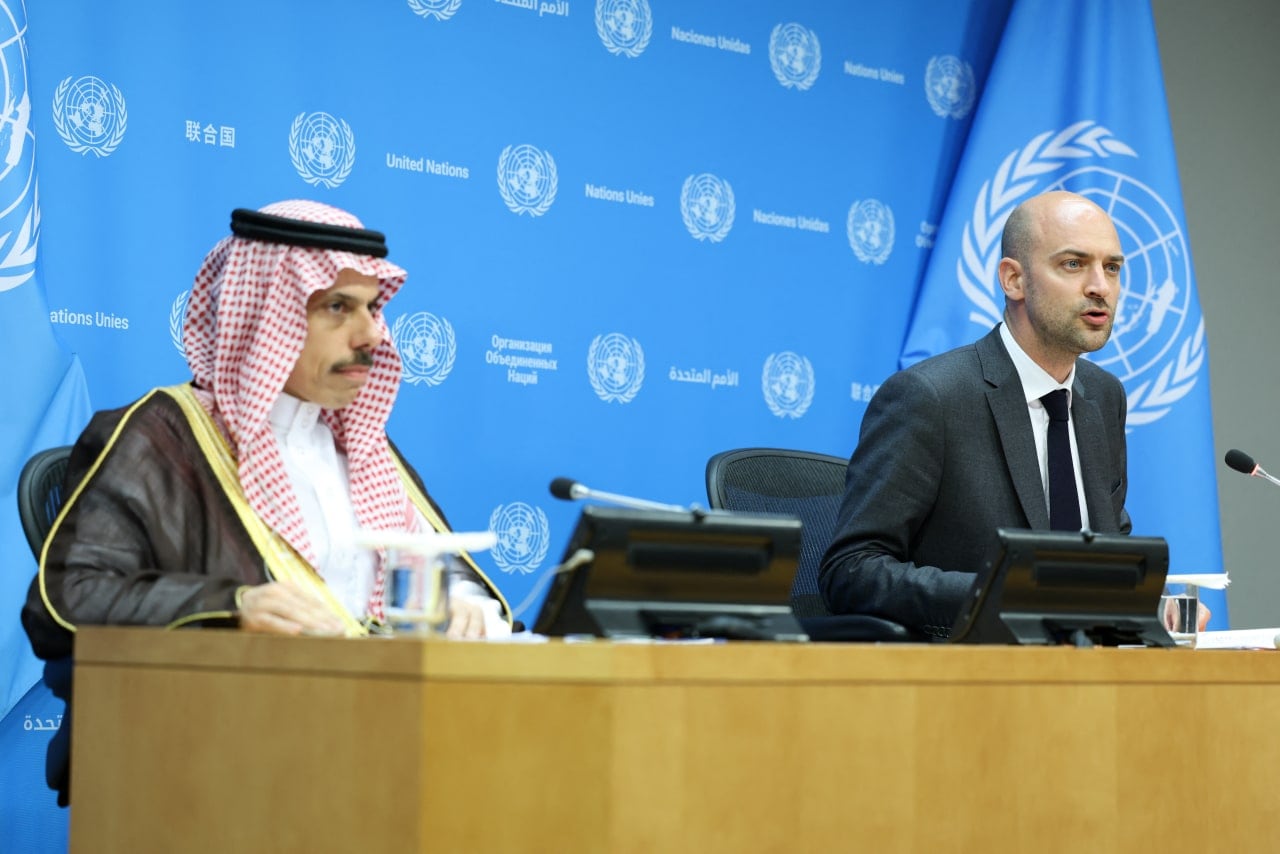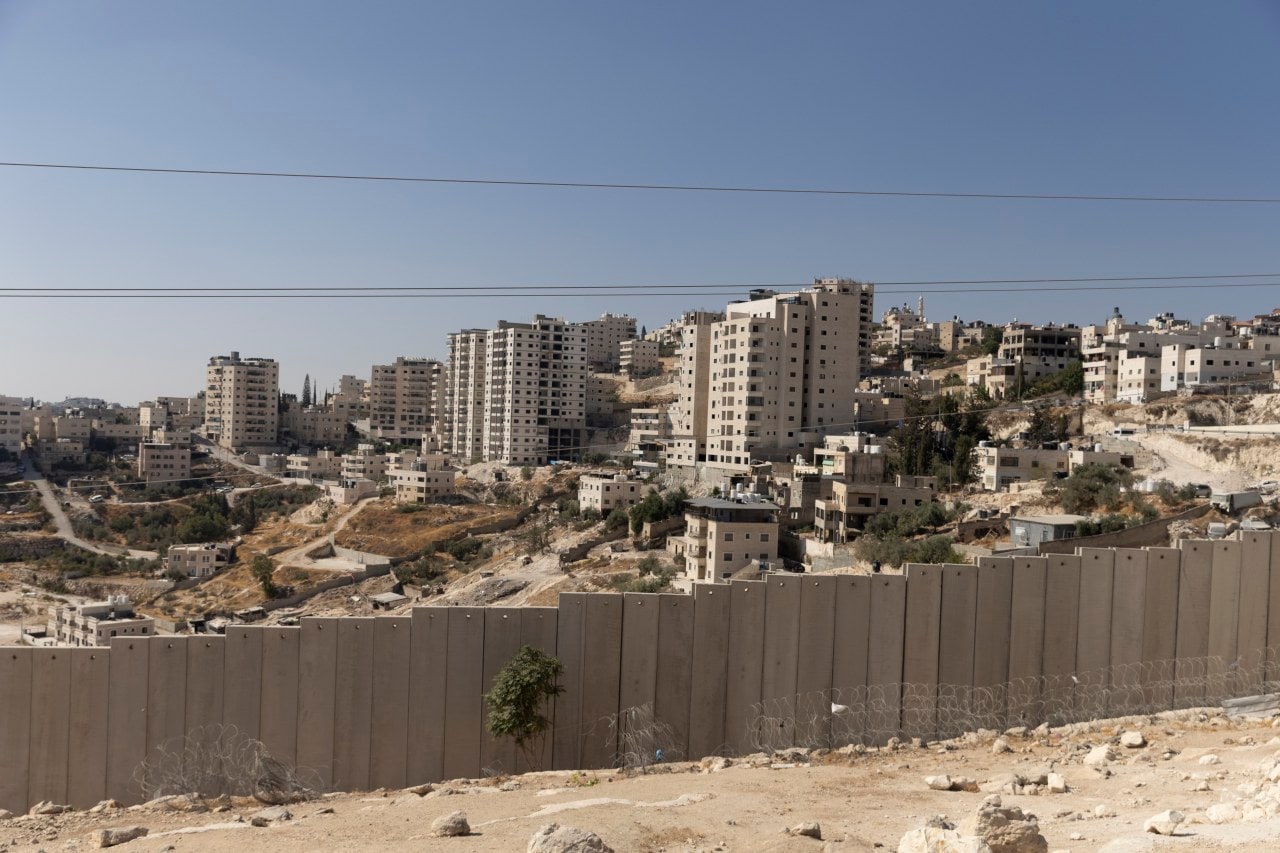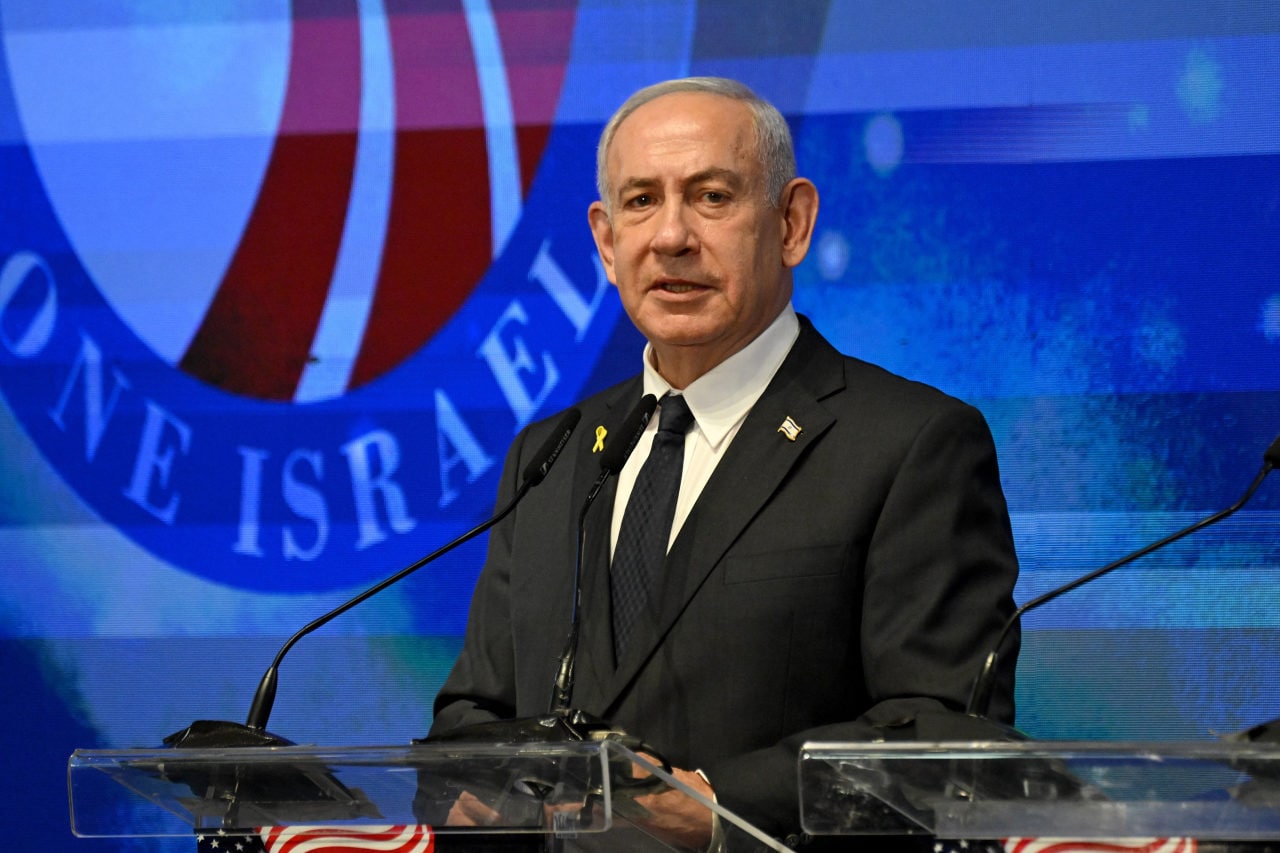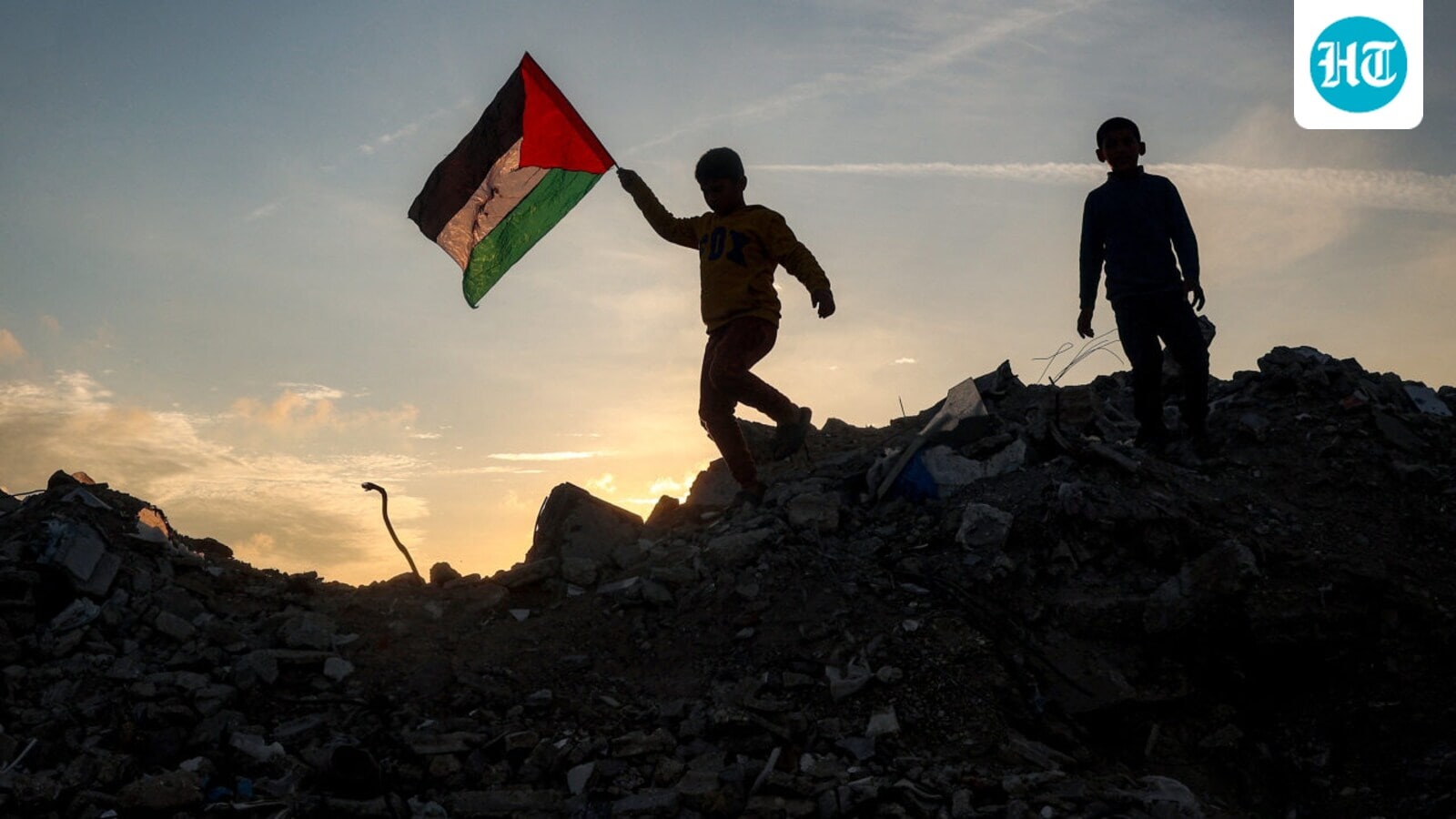On the ground, the two-state solution is more remote than ever. Trust between the two peoples of the Holy Land is plumbing historic depths, as Israel’s military campaign in Gaza—by far the deadliest round of war in the century-old conflict—escalates once more.
Polls, which in the 1990s and early 2000s consistently indicated majority support on both sides for two states, have in recent years shown that only a minority of Israelis and Palestinians support the idea—or think it is feasible in practice.
Politicians who advocate peace through partitioning the land have lost clout on both sides of the conflict. Few Israelis or Palestinians think international announcements will do much to change that trajectory.
“I think it died a long time ago,” Diana Buttu, a former Palestinian peace negotiator, said of the two-state idea. “I think it died with the fact that there was never political will to see it come to fruition.”
France, the U.K., Australia, Canada, Belgium and others are expected to use the gathering of world leaders at the United Nations General Assembly in the coming week to declare their recognition of Palestine as a state. The announcements, some of which are expected Monday, are part of a broader international push to end the war in Gaza and revive a diplomatic path for resolving the overall conflict.
France and Saudi Arabia have led the initiative, lobbying international leaders since last year and organizing a conference on the two-state solution at U.N. headquarters this summer.
That culminated in a declaration on Sept. 12, supported by 142 countries, calling for a cease-fire in Gaza; the release of Israeli hostages; the disarmament of Hamas and its exclusion from governance in Gaza; implementing the two-state solution; and the normalization of diplomatic relations between Israel and the Arab world.
Saudi Foreign Minister Faisal bin Farhan Al Saud and his French counterpart, Jean-Noël Barrot, at a U.N. conference in July.
Israel and the U.S. voted against the declaration, and both have criticized the Western countries that plan to recognize Palestine. “I have a disagreement with the prime minister on that score, one of our few disagreements, actually,” said President Trump, referring to British Prime Minister Keir Starmer during a state visit this past week to the U.K.
Israel’s government has said recognizing Palestine would reward Hamas, which triggered the war with the deadly attack it led on Israel on Oct. 7, 2023. France and others have said they want to sideline Hamas, which rejects the two-state solution. Israeli Prime Minister Benjamin Netanyahu has vowed to retaliate against the announcements without specifying how.
Members of his governing coalition have said Israel should annex the occupied West Bank in response.
“Any unilateral action can be met with unilateral action,” Netanyahu said Monday. “There will be no Palestinian state.”
More than 140 countries already recognize Palestine as a state, including most of the developing world. Until recently, most Western governments said they would only take such a step when Israel and Palestinian leaders reached an agreement on two states.
Israeli Prime Minister Benjamin Netanyahu says there will be no Palestinian state.
There have been no serious peace talks for over a decade, and international impatience with the lack of any peace process has grown acute since Oct. 7 and the war in Gaza, where the continuing human toll has led to protests in many Western countries.
Recognizing Palestine is unlikely to hasten the end of the war in Gaza or to change the direction of Israeli policy in the West Bank, where Israel has tightened its military presence and accelerated settlement building.
Last month, far-right Israeli Finance Minister Bezalel Smotrich celebrated the approval of a new settlement block in the heart of the West Bank as a physical impediment to the two-state solution.
“They will talk about a Palestinian dream—and we will continue to build a Jewish reality,” Smotrich said. “This reality is finally burying the idea of a Palestinian state, because there is nothing to recognize and no one to recognize.”
In early September, he proposed formally annexing 82% of the West Bank to Israel.
French President Emmanuel Macron said such Israeli moves added urgency to the international initiatives. “The attitude of your government, especially of some ministers, is to destroy the possibility of a two-state solution,” Macron said in an interview aired Thursday on Israeli television. “I think this is probably the last minute before the two-state proposal becomes completely impossible.”
Many Palestinians welcome the symbolism of international recognition but don’t think it will materially change their lives. If anything, they see a danger of a harsh Israeli reaction.
A barrier in the West Bank.
“Netanyahu will probably use the recognition to carry out faster actions on the ground to annex the West Bank,” said Mustafa Barghouti, a Palestinian politician who supports the two-state solution. He described Western announcements of recognition as “too little, too late.”
When Spain, Norway, Ireland and others recognized Palestine in May 2024, “We were punished here in the West Bank by more checkpoints, more gates on our cities and our villages, more restrictions on our movement, more arrests, even more censorship on social media,” said Tasame Ramadan, a Palestinian activist from the Nablus area. She said a similar crackdown is already happening now, including more settler violence. Still, she said she supports the international recognition of Palestine.
For many Israelis, the recent diplomatic moves reflect the country’s deepening international isolation in the midst of near-worldwide anger over the scale of death and destruction in Gaza.
With the European Union also discussing sanctions and curbs on trade, “An international tsunami is getting closer to Israel,” said Michael Milshtein, a former senior officer in Israeli military intelligence and a specialist on Palestinian affairs at Tel Aviv University. “Many Israelis are beginning to understand that this tsunami will not be limited to the political and diplomatic field, but also will be felt in their own daily life, from the price of things we buy in the supermarket to the basic capacity to get out of Israel,” he said.
If far-right ministers use the recognition announcements as an opportunity to drive forward the annexation of all or part of the West Bank, the effect could be to undermine Israel’s relations with those Arab countries with which it has peace accords, such as the United Arab Emirates and Jordan, said Milshtein.
Partitioning the land between Israel and Palestine, approximately along the borders before the Arab-Israeli war of 1967, was the ultimate goal of the 1990s Oslo Accords, the most sustained effort at peace. Support for the two-states formula faded after failed U.S.-brokered negotiations in 2000 and 2008.
No clear alternative has replaced it. Ideas for a confederation or binational state haven’t gained traction.
Some Israelis fear that, even without formal annexation, the situation is drifting toward a de facto single state, in which Jews wouldn’t have a clear demographic majority, and would have political control only if Palestinian residents couldn’t vote.
“There is no alternative solution” to partition if Israel is to remain a Jewish and democratic state, said Gilad Kariv, a lawmaker from the left-wing Democrats party and one of the few Jewish politicians who strongly advocate two states. “It’s either Smotrich’s plan, which won’t destroy the Palestinians but rather will destroy the Zionist dream of Israel, or we have to renew the negotiations.”
Write to Anat Peled at anat.peled@wsj.com and Marcus Walker at Marcus.Walker@wsj.com
 The World Sees Hope for a Two-State Solution. Israelis and Palestinians See None.
The World Sees Hope for a Two-State Solution. Israelis and Palestinians See None.  The World Sees Hope for a Two-State Solution. Israelis and Palestinians See None.
The World Sees Hope for a Two-State Solution. Israelis and Palestinians See None.  The World Sees Hope for a Two-State Solution. Israelis and Palestinians See None.
The World Sees Hope for a Two-State Solution. Israelis and Palestinians See None.

